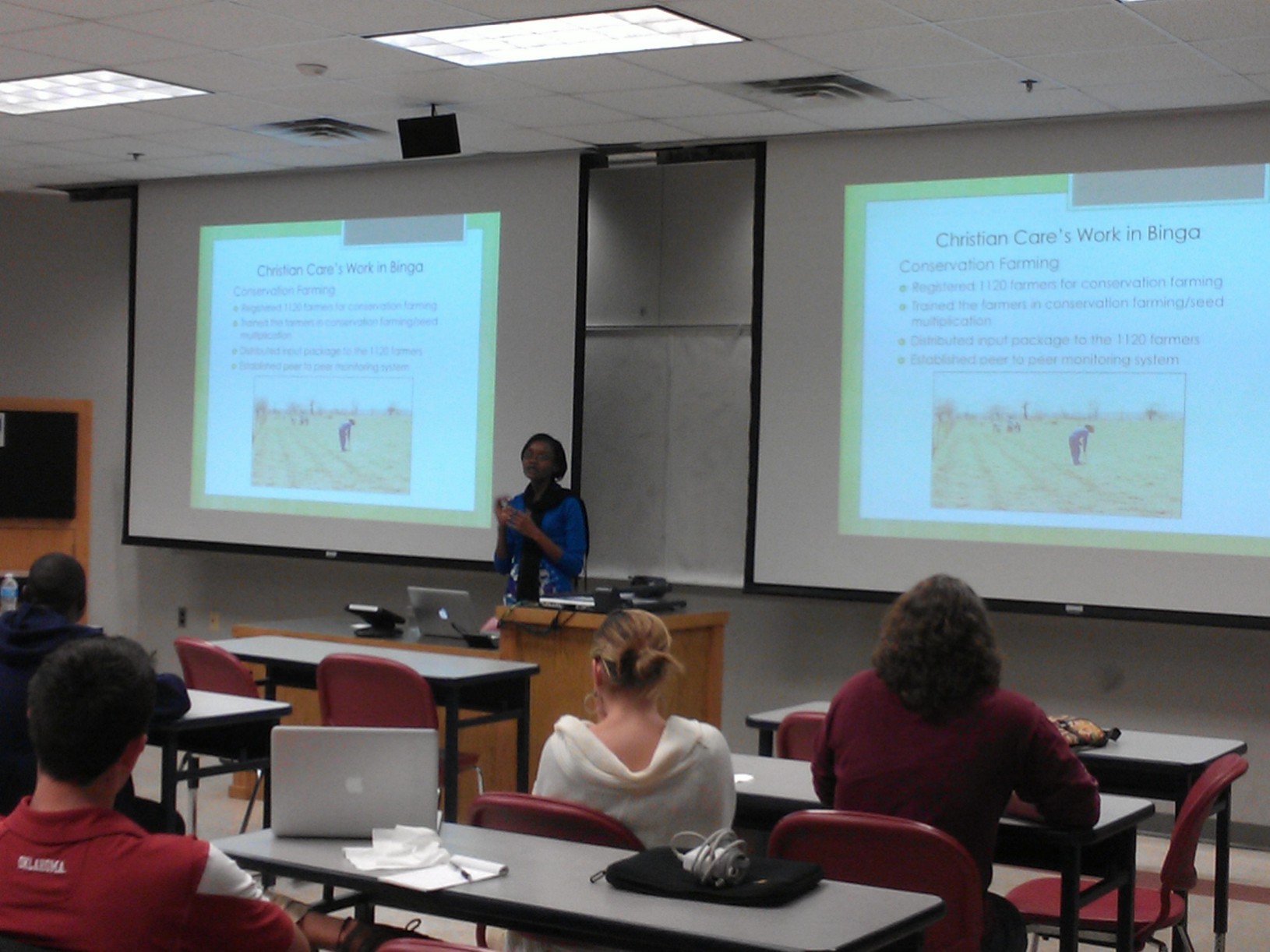A visiting scientist from Zimbabwe spent four months working with SCIPP at the University of Oklahoma (OU) and studied drought. Xolile Ncube works with Christian Care, an organization in Zimbabwe that focuses on implementing conservation farming techniques to mitigate some of the impacts of drought in the country. While at OU, Ncube worked with Dr. Xiangming Xiao at the Earth Observation and Modeling Facility to learn how remote sensing technology such as satellites can be used to understand land use in Zimbabwe and to predict early signs of drought.
Ncube analyzed data from the Moderate Resolution Imaging Spectroradiometer (MODIS) satellite from 2000 to 2012 to understand crop conditions. The data helped her determine the health of crops on an agricultural plot in the Binga District of Zimbabwe. The data was analyzed by three crop growth stages: ascending phase (emergence and green up), plateau phase (peak growth, flowering and seed formation) and descending phase (maturity, senescence and harvesting).

The MODIS data corresponded to the documented maize crop production calendar and Ncube confirmed that three vegetation indices, Normalized Difference Vegetation Index (NDVI), Enhanced Vegetation Index (EVI) and Land Surface Water Index (SWI) are good proxies for understanding the state of vegetation at different crop growth stages.
Ncube’s work showed that there is potential for using remote sensing technology as a way to monitor crop growth, especially in rural areas of Zimbabwe where observations are sparse to non-existent. The data will provide her organization with insight into the times in which they should encourage farmers to implement drought management techniques. Ncube plans to take what she learned in the United States and continue the work back home.
